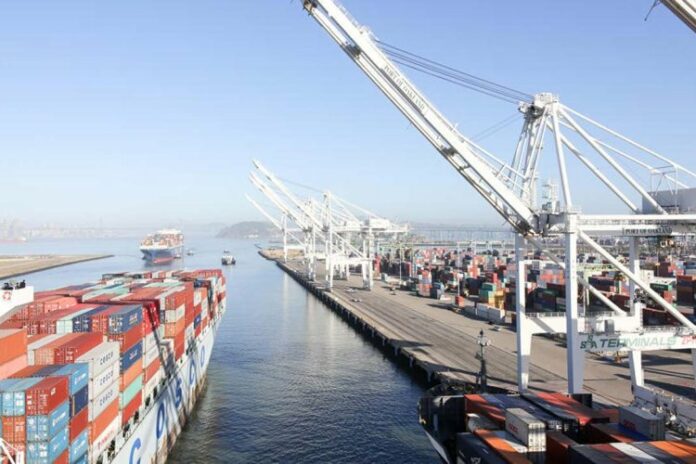The NorCAL ZERO project is a $53 million collaborative effort to deploy 30 Hyundai XCIENT Class 8 hydrogen fuel cell electric trucks (FCETs) in Northern California.
The trucks, which have a range of more than 400 miles on a single fill of hydrogen, primarily operate in drayage service hauling freight and cars to destinations in the Bay Area and the Central Valley.
“The Port of Oakland is pleased to be a part of this innovative, clean energy project that puts Oakland at the forefront of addressing global climate change,” said Port of Oakland Executive Director Danny Wan. “This hydrogen fuel station and these fuel cell trucks represent a strong option for the future of trucking in California. They also support our efforts toward a zero emissions seaport.”
The NorCAL ZERO project introduces the Hyundai XCIENT Class 8 FCET into the U.S. market. Hyundai Motor Company designed and manufactured the vehicles, which are operated by G.E.T. Freight, a division of Glovis America, hauling Port of Oakland containers and Port of Richmond vehicles.
The trucks refuel at the recently opened, high-capacity and high-throughput liquid hydrogen fueling station built and operated by FirstElement Fuel. The hydrogen station has a storage capacity of 18,000 kilograms, which will support more than 200 trucks a day.
Funding for the project includes:
- $11.98 million from California Air Resources Board’s (CARB’s) California Climate Investments Program;
- $9.89 million from the California Energy Commission’s (CEC’s) Clean Transportation Program;
- $3.64 million from Alameda County Transportation Commission (ACTC)’s Clean Freight Program; and
- $3.36 million from the Bay Area Air Quality Management District (BAAQMD).
Papé Trucks maintains the trucks at its San Leandro facility, where technicians receive in-depth training from Hyundai on how to service the trucks. With engineering and design support from the Fiedler Group, Papé Trucks also upgraded its maintenance facility with hydrogen detection and ventilation equipment to safely service the trucks.
Additionally, the University of California, Berkeley, and the West Oakland Environmental Indicators Project are helping with data collection, community outreach efforts, and communication.



